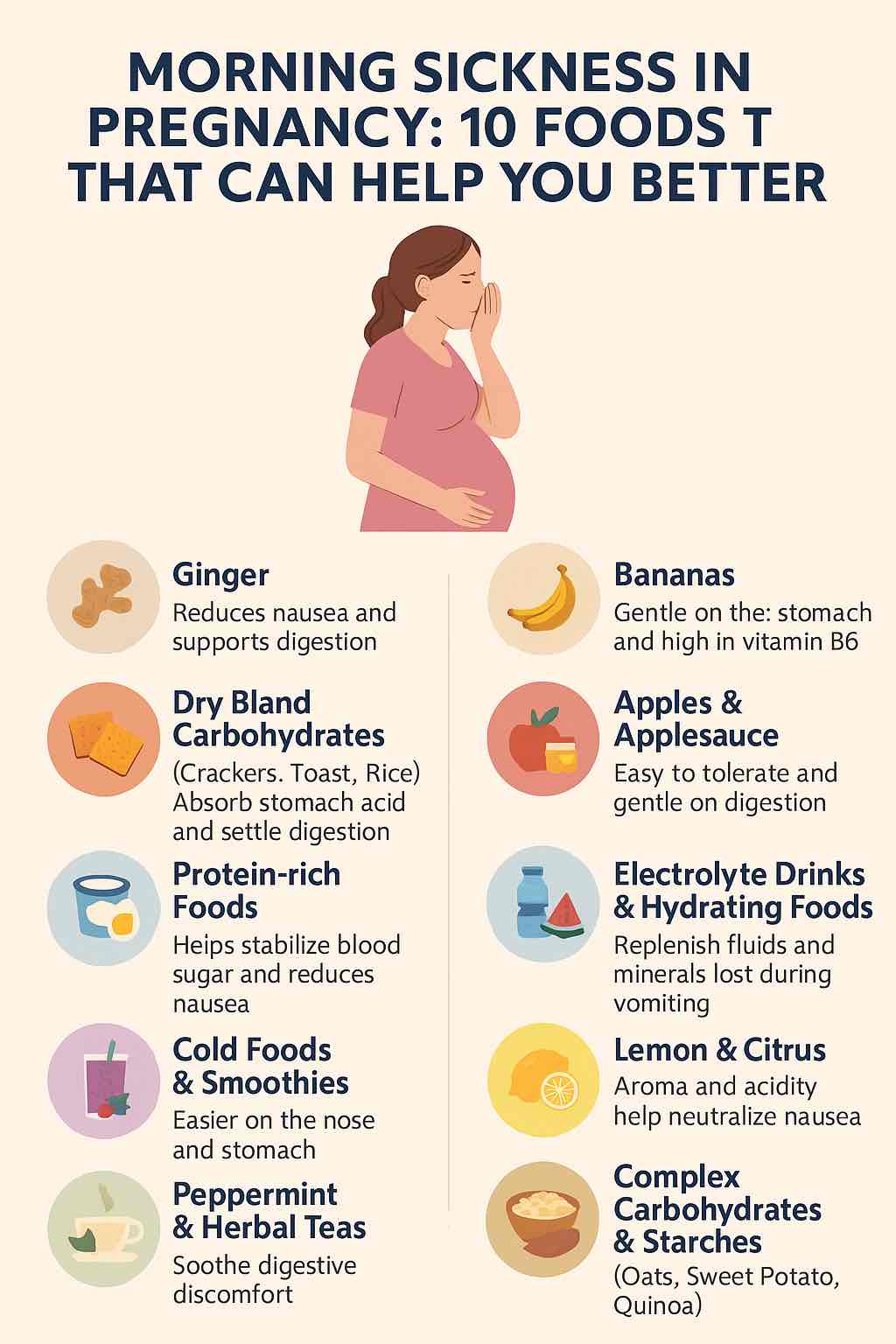
Pregnancy is a beautiful journey—but let’s face it, it comes with its fair share of discomforts too. From morning sickness and fatigue to digestion issues and nutritional gaps, moms-to-be are constantly looking for natural ways to feel better and nourish their growing baby. Pregnancy is exciting—but it also comes with nausea, fatigue, and digestion issues. Many moms ask the same question: 👉 Is lemon safe during pregnancy?
Yes—when consumed in moderation, lemon and lemon water are generally safe in all trimesters. Beyond safety, lemon offers powerful health benefits that can make pregnancy a little easier.
One unsung hero that’s been cherished for generations (and is now backed by research)? Lemon. Yes, that humble yellow fruit sitting in your kitchen could be your new best friend during pregnancy.
Let’s peel back the layers and dive into 5 scientifically-supported benefits of lemon during pregnancy, how to incorporate it safely, and what precautions to take.
🍋 1. Lemon for Morning Sickness in the First Trimester
One of the most common (and dreaded) symptoms in early pregnancy is nausea, often most intense in the first trimester. The refreshing citrus scent and flavor of lemon can be surprisingly effective in alleviating this queasiness.
🧪 What Science Says:
A 2024 clinical study published in the Iranian Red Crescent Medical Journal found that lemon aromatherapy significantly reduced nausea and vomiting in pregnant women during their first trimester. The group that inhaled lemon oil experienced quicker and more noticeable relief compared to those who didn’t.
✅ How to Use:
- Add a few drops of lemon essential oil to a diffuser
- Keep lemon slices nearby and sniff when you feel nausea rising
- Sip warm lemon water with a touch of honey in the morning
This simple, natural remedy can offer quick comfort—no pills or side effects involved.
Also Read: Morning Sickness in Pregnancy: 10 Foods that can Help
🍋 2. Lemon Boosts Immunity During Pregnancy
During pregnancy, your immune system naturally lowers its defenses to prevent rejecting the fetus. While this is crucial biologically, it also means you’re more susceptible to infections.
Lemon, packed with vitamin C, is a powerful immune booster that helps your body ward off colds, sore throats, and other infections.
💡 Did You Know?
One fresh lemon provides 30–50 mg of vitamin C, contributing significantly to the daily recommended intake of 85 mg for pregnant women.
🍵 Best Way to Take:
A cup of warm lemon water in the morning not only soothes your stomach but also gives your immune system a gentle kickstart.
Do Read: Embracing Vitamin C: Boost Your Immunity Naturally with Citrus Delights 🍊🍋
🍋 3. Lemon Improves Digestion & Relieves Constipation
Let’s talk about something no one loves to bring up: constipation during pregnancy. Thanks to hormonal changes (specially, progesterone!), your digestive system slows down, making constipation an unfortunately common issue.
Lemon comes to the rescue again.
🌿 Why It Works:
The citric acid in lemons stimulates digestive juices, helping the liver produce bile. This can improve digestion and ease bowel movements.
🧘♀️ Pro Tip:
Start your day with warm lemon water on an empty stomach. It acts as a gentle natural laxative and encourages regular bowel movements.
Do Read: Optimize Digestion with These 5 Fruit Juice Recipes
🍋 4. Helps Prevent Anemia by Boosting Iron Absorption
Iron is one of the most vital nutrients during pregnancy, but it’s also one of the hardest to absorb—especially from plant-based foods. That’s where lemon’s vitamin C steps in again, enhancing the absorption of non-heme iron from sources like spinach, lentils, and beans.
🧪 Research Insight:
The Cleveland Clinic emphasizes pairing iron-rich meals with vitamin C-rich foods like lemon to optimize absorption and prevent pregnancy anemia, which can lead to fatigue, shortness of breath, and low birth weight.
🍽️ Practical Tip:
Squeeze fresh lemon over spinach, chickpeas, or dal to improve both taste and nutrient absorption.
Also Read: 5 Iron-Enriched Smoothies for Pregnancy with Spinach and Apple
🍋 5. Lemon Keeps You Hydrated (and Energized)
Hydration during pregnancy isn’t just important—it’s critical. Your body needs more fluids to support increased blood volume, maintain amniotic fluid levels, and aid in nutrient transport to the baby.
But let’s be honest: plain water can get boring.
🍋 Enter: Lemon Water during Pregnancy
Adding lemon to your water makes it more flavorful and refreshing, encouraging you to drink more throughout the day. Plus, the small amounts of potassium in lemon also support electrolyte balance, helping to reduce muscle cramps.
🍼 Hydration Hack:
Keep a bottle of lemon-infused water with cucumber or mint on hand. It’s tasty, hydrating, and full of subtle benefits.
Do Read: Summer Pregnancy: Hydration and Comfort
⚠️ A Note of Caution: Lemon Is Powerful—but Use It Wisely
While lemon is generally safe for pregnant women, there are a few things to keep in mind:
🚫 Potential Concerns:
- Tooth enamel erosion: The acid in lemon can wear down your teeth. Always rinse your mouth with plain water after drinking lemon water, or use a straw.
- Heartburn alert: If you’re prone to acid reflux or heartburn, lemon might exacerbate it.
- Moderation is key: Too much of anything—even lemon—can be harmful. Use it as part of a balanced approach to nutrition.
📊 Trimester-Specific Benefits of Lemon Water
| Trimester | Key Benefits | Cautions |
|---|---|---|
| 1st Trimester | Reduces nausea & vomiting | Monitor for heartburn |
| 2nd Trimester | Boosts immunity & hydration | Avoid excessive intake |
| 3rd Trimester | Supports digestion, iron absorption, reduces cramps | Dilute more if reflux worsens |
👶 Final Thoughts: Small Fruit, Big Benefits
Pregnancy is all about making small, intentional choices that support your body and your baby. Adding lemon to your daily routine is one of those small changes that can make a big difference—naturally.
Whether it’s in your water, over your salad, or simply inhaled from a slice on your desk, lemon is a pregnancy-friendly powerhouse that deserves a place in your prenatal wellness toolkit. Used wisely, lemon water can be a simple, natural way to support your health (and your baby’s) throughout all three trimesters.
💬 We’d Love to Hear from You!
Have you tried lemon during your pregnancy? Did it help with nausea, digestion, or anything else? Share your experience in the comments below—we’re building a supportive community one mama at a time. 💛
📝 10 FAQs: Lemon During Pregnancy
1. Can I eat raw lemon during pregnancy?
Yes, eating raw lemon is generally safe during pregnancy. It’s a great source of vitamin C and antioxidants. However, due to its high acidity, it’s best to consume it in moderation and rinse your mouth afterward to protect tooth enamel.
2. Is lemon water safe throughout all trimesters?
Yes, lemon water is safe in all trimesters, but it’s especially helpful in the first trimester for managing nausea. If you experience heartburn or acid reflux in later trimesters, monitor how your body reacts, and reduce intake if needed.
3. How much lemon is safe to consume daily during pregnancy?
There’s no official limit, but moderate consumption (1–2 lemons a day, either as juice or water additive) is considered safe for most pregnant women. Always consult your OB-GYN if unsure or if you have a sensitive digestive system.
4. Can lemon trigger heartburn during pregnancy?
Yes, in some women, the acidity of lemon may trigger or worsen heartburn, especially in the third trimester. If you’re prone to acid reflux, it’s best to limit lemon intake or dilute it more when added to water.
5. Is lemon tea safe during pregnancy?
Yes, homemade lemon tea (without caffeine) is safe and soothing. Add lemon to warm water with honey or ginger for a gentle, natural remedy for nausea, sore throat, or cold symptoms.
6. Does lemon help with constipation in pregnancy?
Yes. Lemon stimulates digestion and increases bile production, which can help relieve constipation when consumed with warm water, especially in the morning on an empty stomach.
7. Can lemon affect the baby’s health?
Lemon provides essential nutrients like vitamin C and folate, which support the baby’s immune system, bone development, and neural tube formation. There’s no known harm to the baby from moderate lemon intake.
8. Can lemon be used as a remedy for pregnancy-related bloating or gas?
Yes, lemon water may help reduce bloating by aiding digestion and flushing excess sodium and toxins from the body. Pairing lemon with warm water or mint can offer added relief.
9. Should I avoid lemon if I have gestational diabetes?
Lemon is low in sugar and has a low glycemic index, so it’s generally safe for women with gestational diabetes. Still, avoid sweetened lemon beverages and always consult your doctor for personalized dietary advice.
10. Can I use lemon essential oil during pregnancy?
Lemon essential oil can be used aromatically (diffuser, inhalation) to help with nausea or lift mood. However, avoid ingesting it or applying it undiluted to the skin. Always use pregnancy-safe essential oils and consult a healthcare provider.
📚 References
- Iranian Red Crescent Medical Journal (2020). Effect of Lemon Inhalation on Nausea and Vomiting During Pregnancy: A Randomized Clinical Trial. PubMed
- Cleveland Clinic. How Vitamin C Helps You Absorb Iron. Cleveland Clinic Health Essentials
- Eureka Health (2023). Vitamin C and Iron Absorption for Women. Eureka Health
- Baby360 Degrees. Managing Constipation During Pregnancy: A Guide. Baby360
- Mayo Clinic Health System. Boost Your Senses with Citrus Fruits. Mayo Clinic
- Real Simple (2025). What Are the Health Benefits of Lemon Water? Real Simple
- Health.com (2024). Lemon: Nutrition, Benefits, Risks, and More. Health.com














